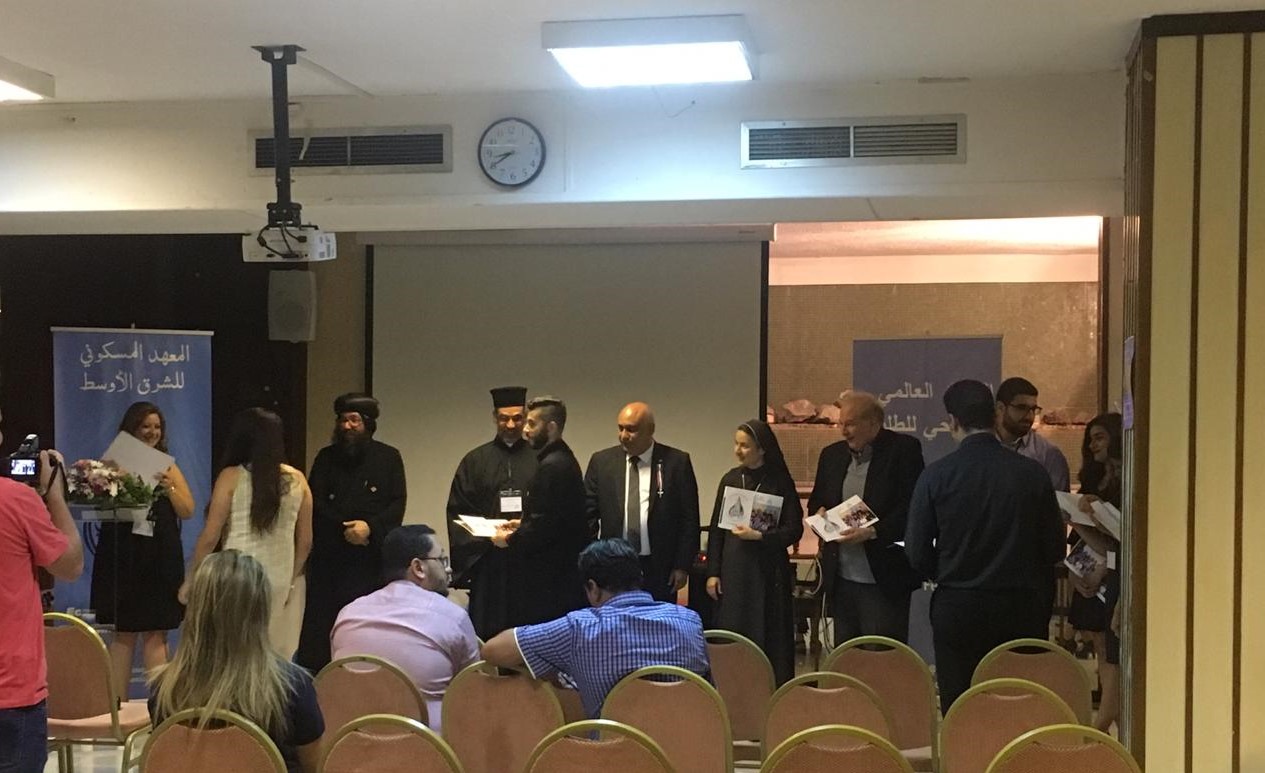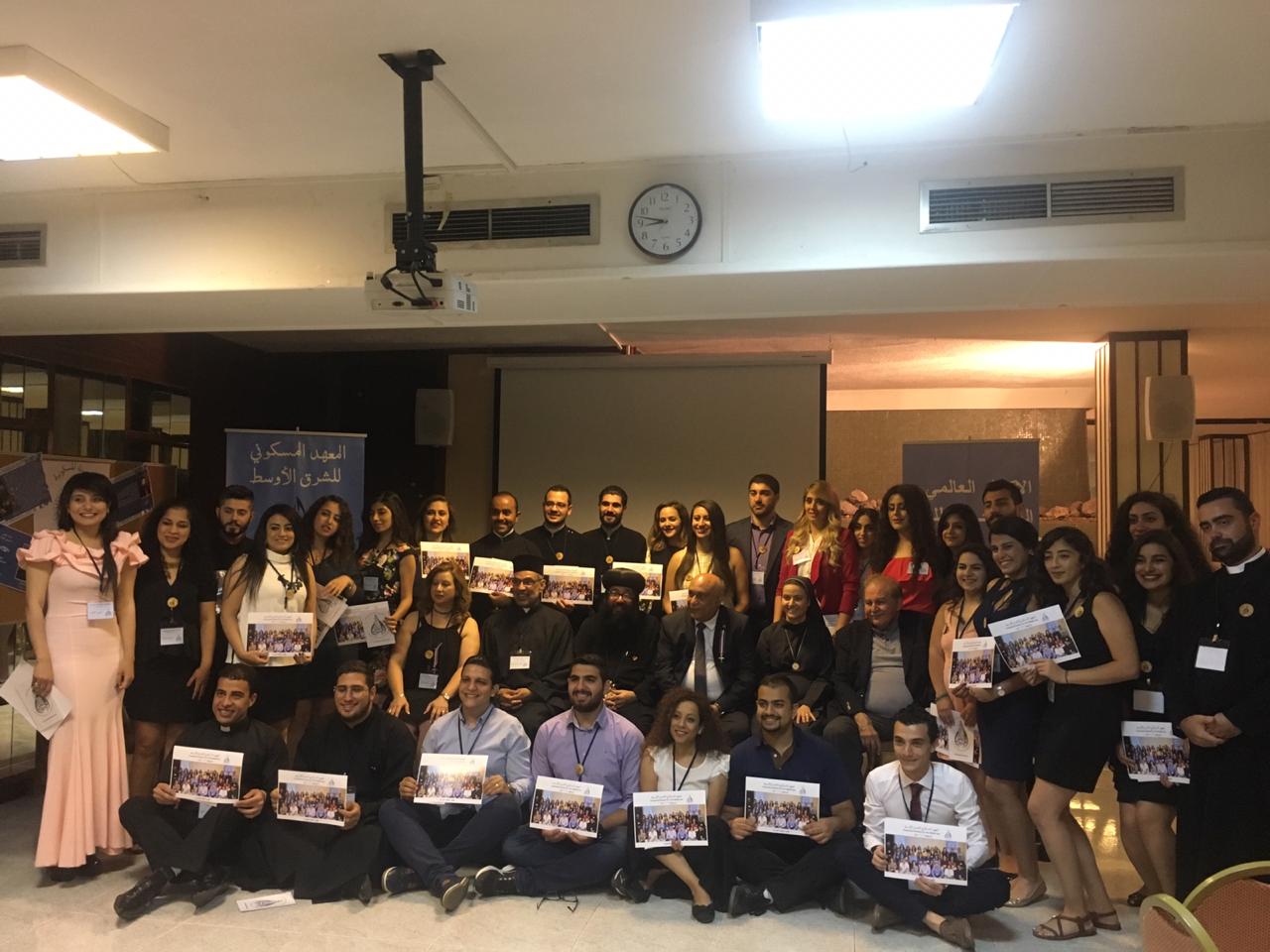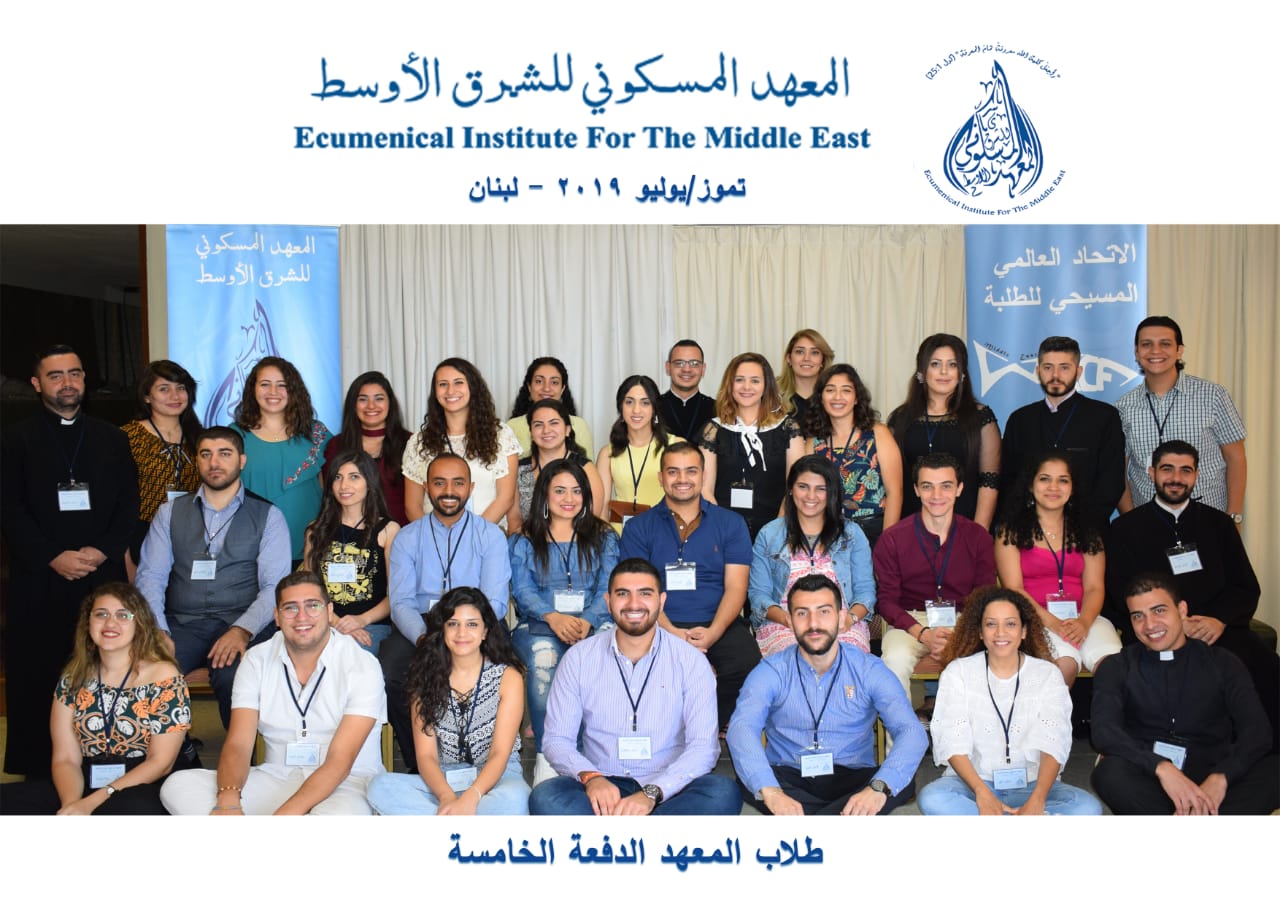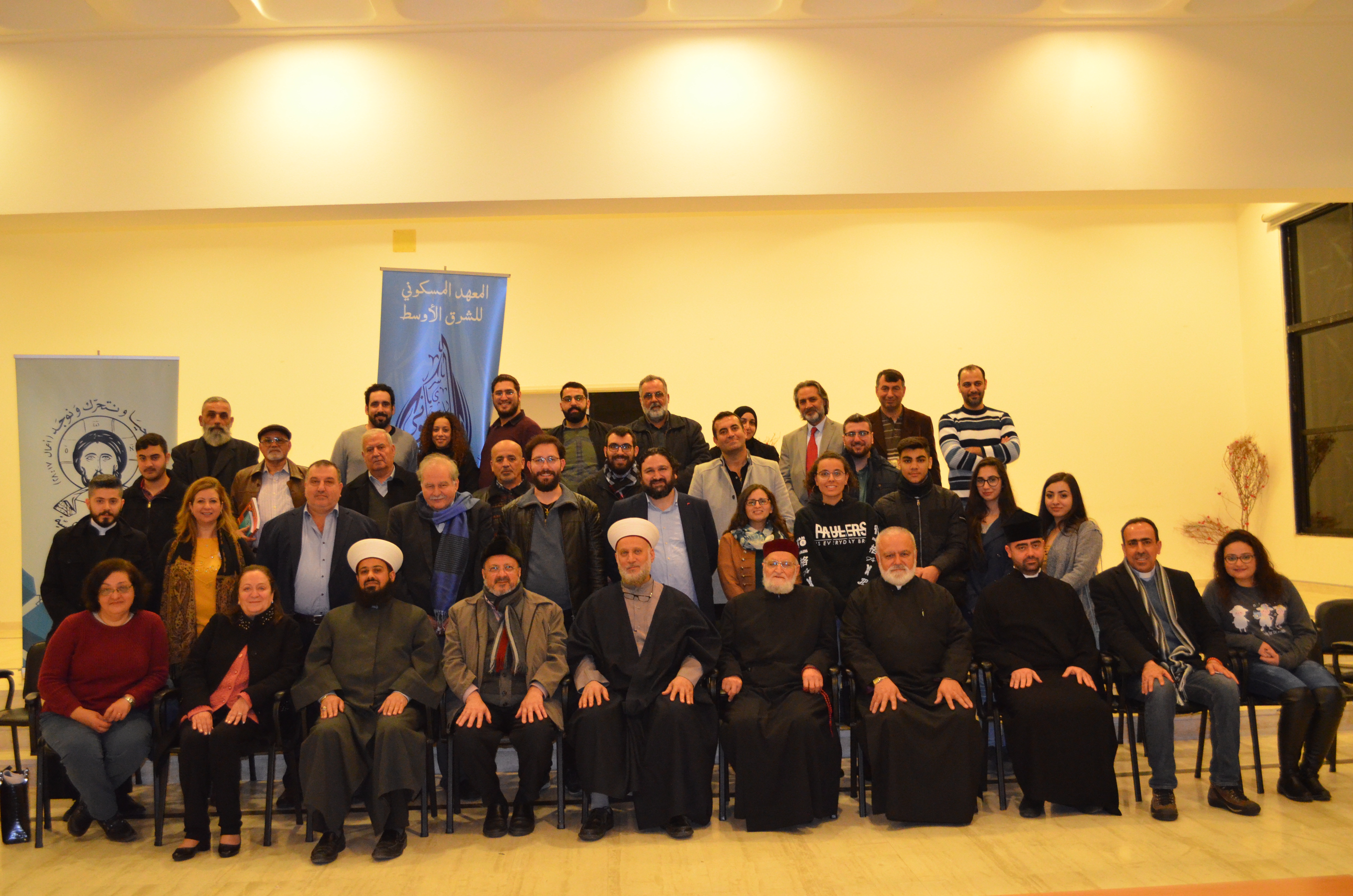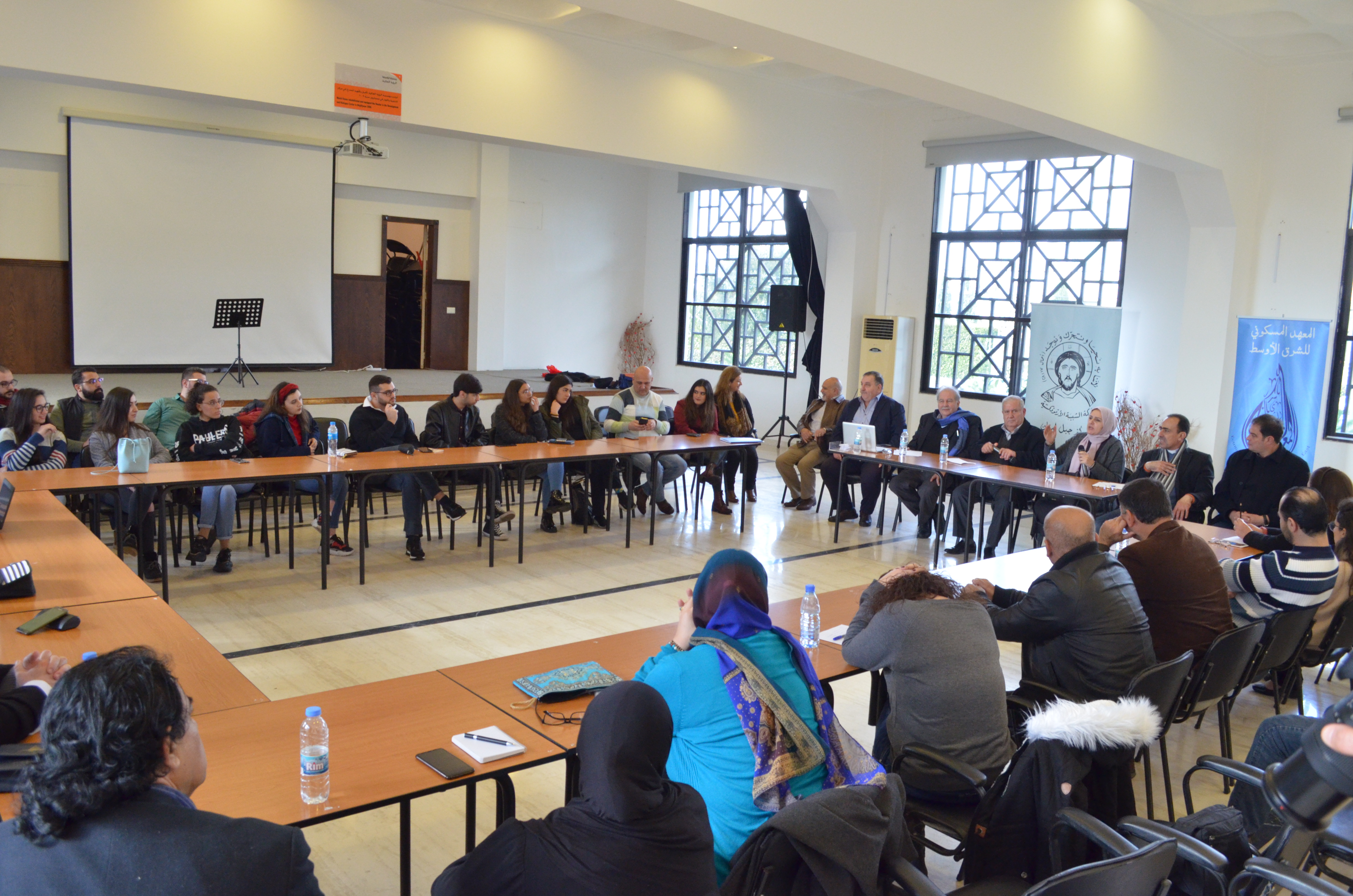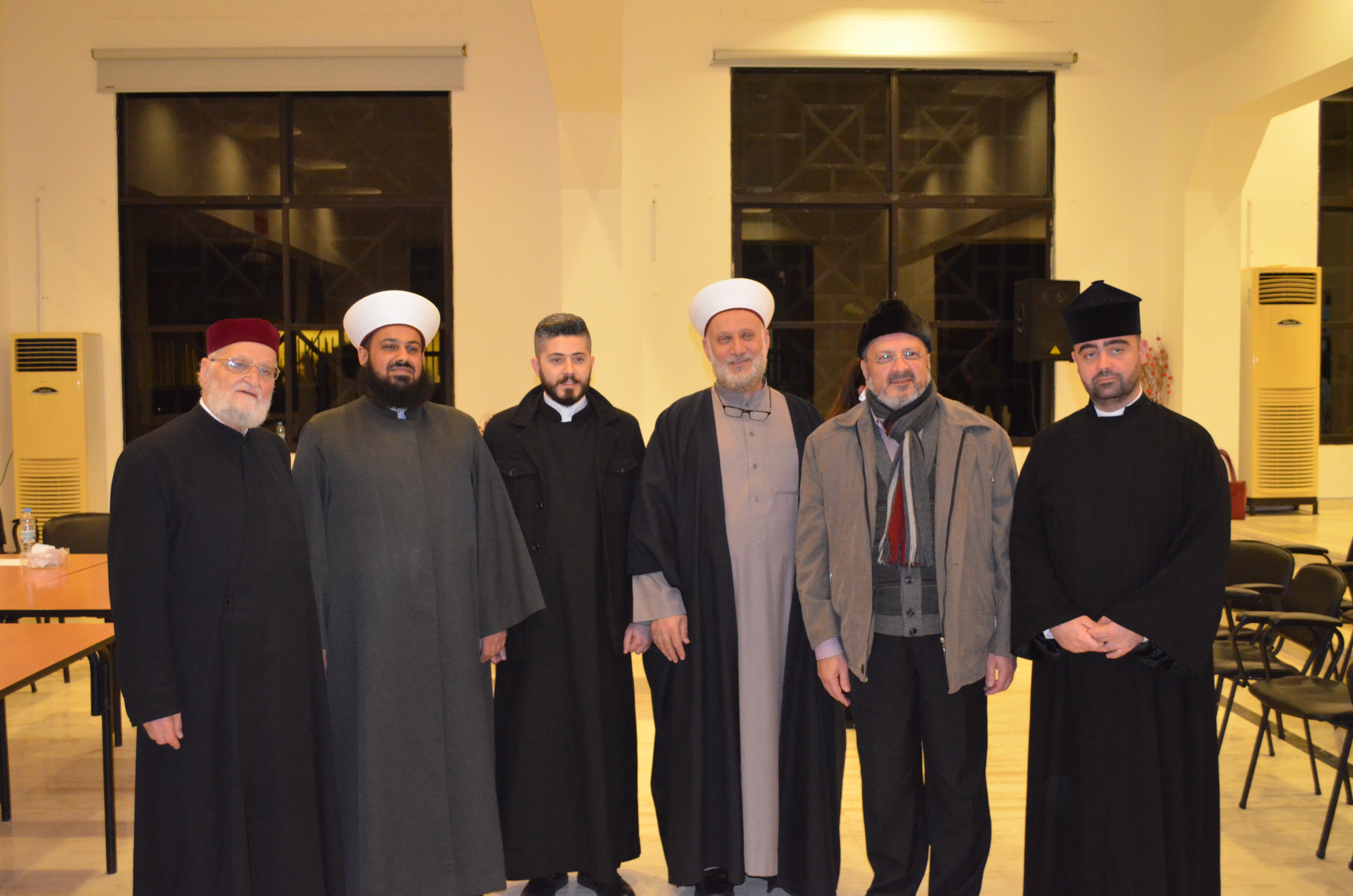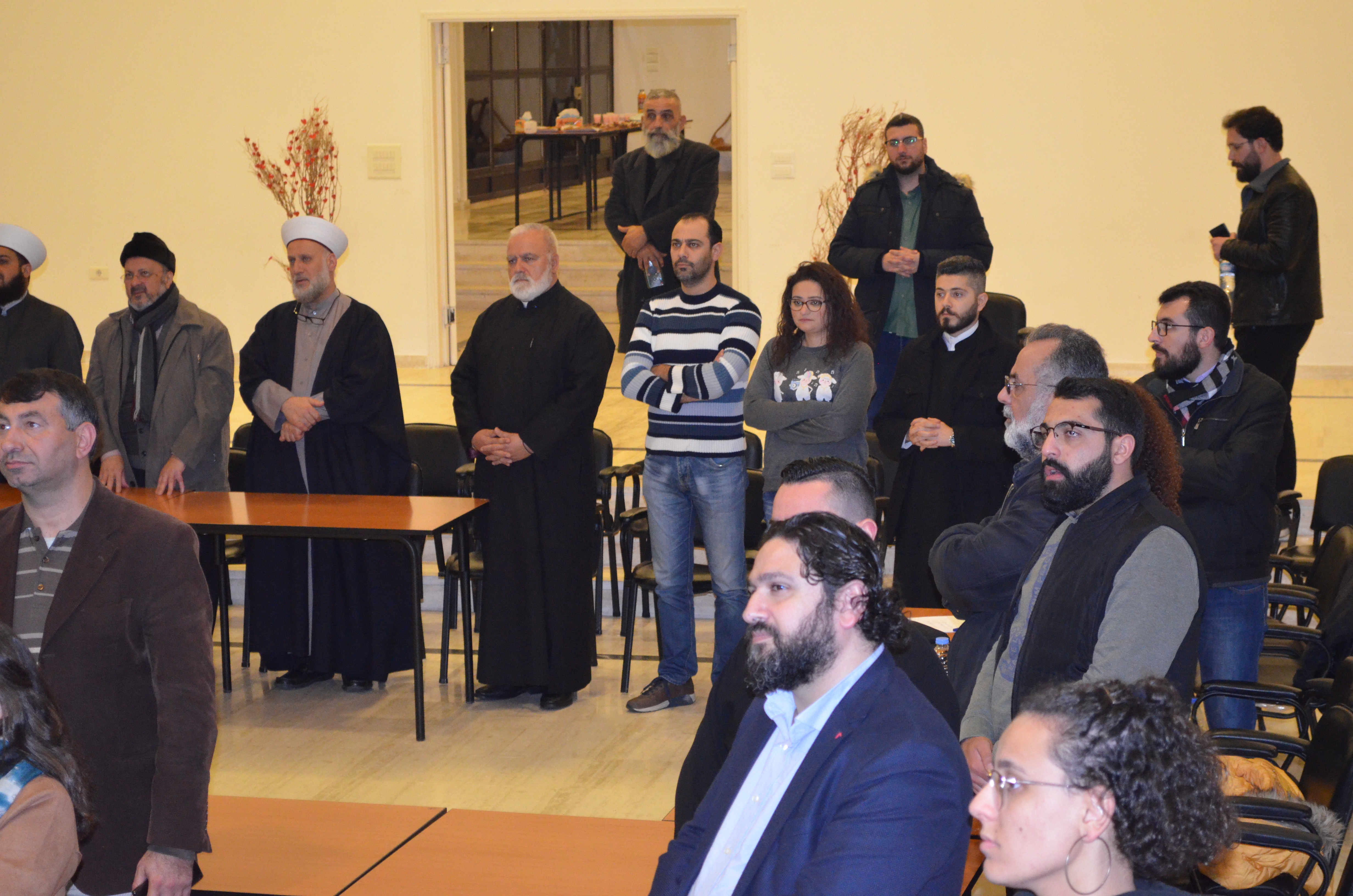To read the article please click here
At the invitation of the Ecumenical Institute for the Middle East, the Centre de Dialogue et Development, the Orthodox Youth Movement, and the Diocese Youth of the Church, a youth meeting was held on the February 22, 2020, at the Centre de Dialogue et Development in Majdaloun, Lebanon. This meeting gathered about seventy young men and women from different denominations, under the title of “Together for Lebanon”.
This unique meeting opportunity started with words from the president of Centre de Dialogue et Development, Mr. Emile Iskandar, and the director of the Ecumenical Institute for the Middle East, Dr. Zahi Azar. The meeting included also an introduction on citizenship by the journalist Ms. Badia Hani Fahs, and an introduction to social justice by the secretary-general of the Orthodox Youth Movement, Mr. Fadi Nasr. Each of these sessions were followed by workshops, during which the participants were divided into groups. During the concluding session many Christian and Muslim clerics contributed in the discussion of this meeting’s sessions, with future aspirations for the role of the youths in shaping the new Lebanon on the basis of diversity and coexistence. The meeting ended with a common prayer presented by Fr. Walid Aldik.
The meeting issued the following appeal:
1) The participants affirm that Lebanon is a homeland for all its people, and it is a homeland of mission, dialogue and openness.
2) The basic principle for the establishment of the state in Lebanon stems from the work of institutions in light of equality, social justice and respect for human rights.
3) Social justice in Lebanon is an essential element in establishing stability and driving the citizens to participate in a cultural, social and economic renaissance that affects the social strata of all sects in various regions.
4) The modern civil state, which is based on the principle of citizenship and getting out of the sectarian conflicts, is the guarantor of stopping conflicts, wasting energies, and positioning Lebanon on the map of the developed countries.
5) The profound crisis that the country is currently experiencing under the weight of popular demands against waste, corruption and social justice must contribute with all the components of civil society in building a new Lebanon that meets the ambitions of its people, especially the younger generation.
6) The participants call on all the Lebanese youths within the religious organizations (Muslims and Christians) or outside of them, to take advantage of the historical moment that the country has lived since October 17, 2019 to deepen their commitment to build a new Lebanon with values of mutual knowledge, solidarity, shaping visions and field delivery.
7) Publishing Muslim-Christian youth seminars in various Lebanese regions to contribute in building of the new Lebanon, away from every geographic or political centrality.
8) The participants emphasize on the importance of the constructive social communication and accompanying media as essential elements to strengthen the committed youthful sources in this innovative structure.
9) The participants stress on the importance of developing environmental awareness with all its components and regulations as a basic orientation in building a homeland that resembles the ambitions of the youths.
10) The participants called on the Lebanese youths to continuously be new source of hope that always elevates the Lebanese people to new and promising horizons.
11) The participants affirm that religious faith can be a reinforcer for building social justice and citizenship if the consciousness of the youths crystallizes that faith could be freed from sectarian fanaticism.
12) The participants hope that these dialogue seminars will expand in associations, schools and universities, so that everyone can participate in discussing current issues, while continuously evaluating the process in order to formulate one national vision that aims to overcome the current crises, establish a new republic that meets the Lebanese people’s ambitions of stability and prosperity, and maintain Lebanon’s civilized role in the Arab setting and the world at large.
Signed by:
Muslim and Christian youths
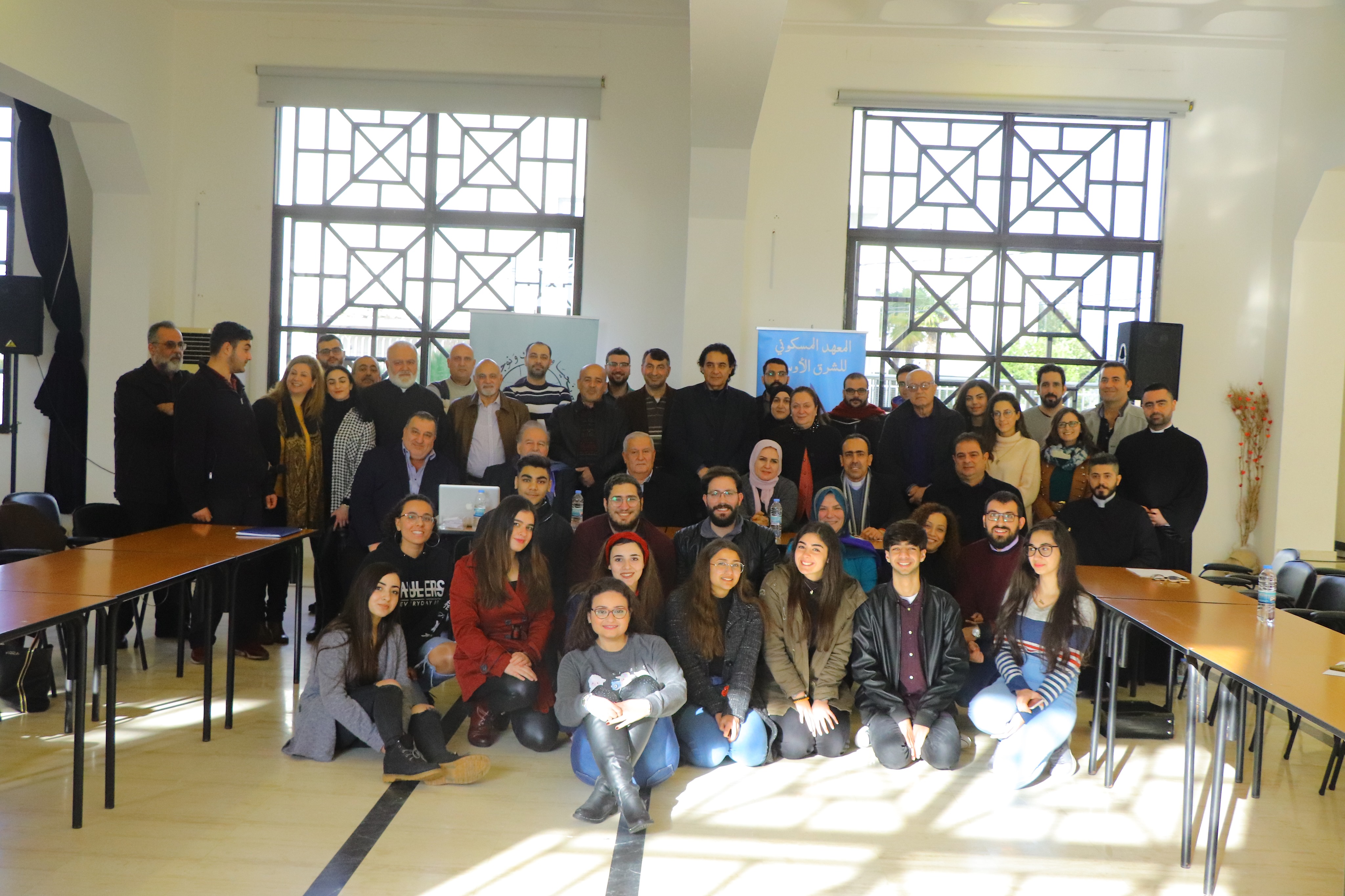
The Ecumenical Institute for the Middle East celebrated the closing of the fifth year’s Intensive Ecumenical Learning Session, which was organized by the Institute and collaboration of the World Student Christian Federation. The participating students came from 7 Arab countries (Lebanon, Syria, Palestine, Jordan, Iraq, Egypt, and Sudan) and were representatives of different Eastern Churches, youth movements, and theological seminaries.
The three-weeks Intensive Ecumenical Learning Session was held from the 1st to the 18th of July, 2019, at Hotel Le Crillon, Broumana, Lebanon, in the presence and supervision of the director of the Ecumenical Institute for the Middle East, Dr. Zahi Azar, and the executive secretary, Ms. Elsy Wakil. The program of the learning session included Bible study and prayer sessions, many enriching and helpful academic lectures presented by specialized lecturers who introduced topics about the Eastern Churches, the ecumenical work and its implementation mechanisms, Christian-Muslim dialogue, etc… The program also provided the students with the opportunity to experience ecumenism through practical workshop sessions and ecumenical visits to the city of Zahle and Wadi Qanoubin, besides the visits to many touristic sites in Lebanon.
The closing ceremony was held on the 18th of July. The ceremony started with a joint prayer, followed by the students’ speech and a video presentation about the Ecumenical Institute prepared also by the students. On behalf of the instructors of the Ecumenical Institute for the Middle East, sister Samar Barkho and Fr. Kamil William delivered their words.
In his word, the co-regional secretary of the World Student Christian Federation, Mr. Ayman Karam, expressed his happiness upon his participating in the fifth intensive ecumenical learning session and the role that the Ecumenical Institute and the World Student Christian Federation are playing in the region, pointing out that the Institute has a great role in spreading the messages of love and understanding among all, and that the establishment of Institute is a realized dream that is growing thanks to God who bless all the works that seek unity and love among people.
Dr. Zahi Azar, the director of the Ecumenical Institute for the Middle East, expressed his happiness towards the students participating in the fifth session, and thanked all the instructors and lecturers who participated in the activities of the session. He also welcomed and thanked His Excellency, Bishop Yulius, for participating in the activities of this session and for delivering an enriching lecture to the students.
Bishop Yulius, in his turn, thanked all the institute staff, especially Dr. Zahi Azar, the director of the Institute, and Ms. Elsy Wakil, the executive secretary, for their great role in the success of the fifth session and for their endeavors to bring the message of love and unity among all churches. His excellency also praised the students for their enthusiasm, intelligence and positive interaction throughout the program of this summer learning session.
For their part, the students gave medals of love to Ms. Elsy Wakil and Mr. Ayman Karam as an expression for their efforts to make this program a success.
The closing ceremony concluded with the distribution of the EI 2019 group photo to the students, after which all the participants in the ceremony gathered around a table for dinner and fellowship.
